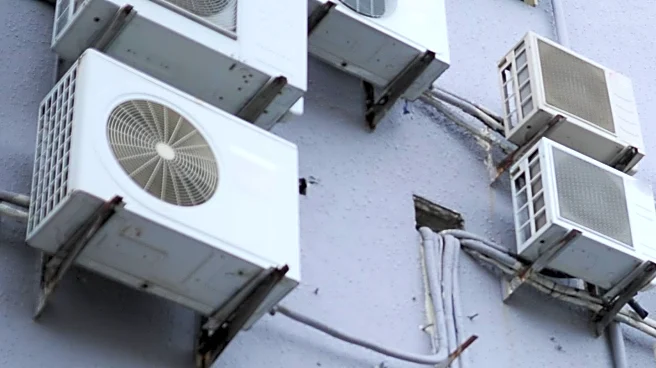What's Happening?
As late-season heat waves persist across the U.S., households are seeking ways to manage high air conditioning costs. Experts suggest several strategies to reduce energy consumption, such as using smart thermostats, sealing leaks, and utilizing ceiling fans. These methods can help maintain comfort while lowering electricity bills. The U.S. Department of Energy recommends setting thermostats to 78 degrees Fahrenheit when at home to maximize savings. Implementing these tips can lead to significant reductions in energy expenses.
Why It's Important?
With rising energy costs, these strategies offer practical solutions for households to manage their budgets effectively. By reducing energy consumption, homeowners can not only save money but also contribute to environmental sustainability. The adoption of energy-efficient practices can lead to broader societal benefits, such as reduced demand on power grids and decreased carbon emissions. This aligns with growing public interest in sustainable living and energy conservation.
What's Next?
Homeowners may increasingly adopt smart home technologies and energy-efficient practices as awareness of their benefits grows. Utility companies and government agencies might expand programs to encourage energy conservation, offering incentives for adopting these practices. The market for smart home devices and energy-efficient products could see increased demand, driving innovation and competition in the sector.











